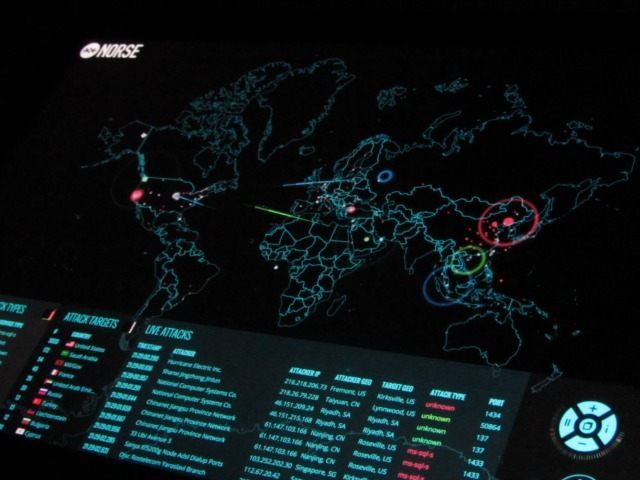China and North Korea were judged weak on cyber defense against hacker attacks in a recent Australian assessment of Asian-Pacific electronic security.
The report found China “has improved its oversight and abilities in the digital realm,” but has “failed to translate this into tangible policy or program,” according to the Wall Street Journal. The rural areas of China were cited as especially vulnerable. The difficulty of agencies cooperating across its massive, sometimes fractious bureaucracy was cited as another problem area.
As for North Korea, they came in dead last on the cyber-competence report, due to a “paucity of policy and cybercrime agencies.”
The United States was ranked best-prepared for cyber crime of the Pacific powers, followed by Japan, South Korea, and Singapore. That might sound rather optimistic, given how many high-profile hacker attacks against U.S. targets have occurred lately, but the report is meant to be a comprehensive measure of public and private capabilities. Also, the analysts were concerned with “cyber maturity” as well, taking some points away from China for its addiction to censorship, while rewarding countries like the United States with a commitment to free expression.
Another important measure of cyber-security was the degree to which important social, economic, and security functions were integrated with the Internet. Singapore ranked especially high on this standard. The report applauded its “ambitious SmartNation Program, which seeks to harness the potential of the ‘Internet of things’ into the heart of all it does.”
The Wall Street Journal describes Australia’s Interpol-supported report as an effort to “assess cyber abilities and frameworks in Asia, the scene of intense economic and political rivalry between the U.S. and China.” The report’s authors also noted that the Asia-Pacific region is a unique mixture of extremely advanced hi-tech economies and developing nations, making regional security practices difficult to coordinate.
Interpol’s involvement is crucial because as the report points out, “There are very few crimes which do not rely in some way on the use of the Internet to move money, for communication between criminals or for access to victims.”
The military has also become important as both a defense against cyber-crime and a potential threat. The report observes that many online clashes mirror real-world geopolitical struggles closely, as with China and various U.S.-aligned powers contending over the South China Sea. It is clear that any significant military action would reach into cyberspace immediately. Even pacifist Japan has come to view cyber-security as a military issue.
The report from the Australian Strategic Policy Institute can be read in its entirety here.

COMMENTS
Please let us know if you're having issues with commenting.